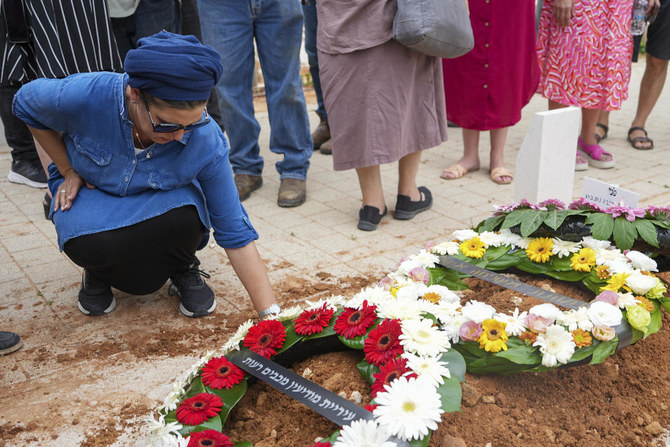JERUSALEM: An Israeli woman critically wounded in a 2001 suicide bombing at a Jerusalem restaurant has died, an Israeli hospital said Thursday. Her death marks the sixteenth fatality from that attack.
Hana Nachenberg was 31 at the time and was dining with her 3-year-old daughter when the blast occurred, Israeli media reported. She was in a coma for nearly 22 years until she died on Wednesday, reports said. Her daughter was not hurt in the attack.
On Aug. 9, 2001, a Palestinian bomber walked into a Jerusalem pizzeria and blew himself up. The attack remains one of the most infamous in the Israeli-Palestinian conflict and it came at a time of surging violence between the sides during the second Palestinian intifada or uprising.
Aftershocks of the attack, which wounded dozens, still make news today. The family of an Israeli-American girl killed in the attack is waging a campaign to press Jordan, a close American ally, to send a woman convicted of aiding the attacker to the United States for trial.
Ahlam Tamimi was convicted of choosing the target and guiding the bomber there and was sentenced by Israel to 16 life sentences. Israel released her in a 2011 prisoner swap with the Hamas militant group and she was sent to Jordan, where she lives freely and has been a familiar face in the media.
The US has charged Tamimi with conspiring to use a weapon of mass destruction against Americans. Her name was added to the FBI’s list of Most Wanted Terrorists.
After 22 years in a coma, Israeli woman critically wounded in 2001 Jerusalem suicide bombing dies
https://arab.news/n9g2c
After 22 years in a coma, Israeli woman critically wounded in 2001 Jerusalem suicide bombing dies

- Woman was 31 at the time and was dining with her 3-year-old daughter when the blast occurred
UN Palestinian refugee agency says demolished HQ set on fire

- UNRWA described the blaze as part of an “ongoing attempt to dismantle the status of Palestine Refugees”
- Its compound in Israeli-occupied East Jerusalem has been empty of staff since January 2025
JERUSALEM: The United Nations’ agency for Palestinian refugees said Sunday that its partially demolished headquarters in occupied East Jerusalem was set on fire.
The agency, UNRWA, did not offer details on the cause of the incident at their premises, which Israeli authorities seized and began dismantling last week after banning the organization from operating in the country in 2025.
“After having been stormed and demolished by the Israeli authorities, the UNRWA Headquarters in occupied East Jerusalem has now been set on fire,” the agency said in a statement.
It described the blaze as part of an “ongoing attempt to dismantle the status of Palestine Refugees.”
The fire and rescue service said early Sunday that it had responded to a call at the facility, where it was working to “extinguish the blaze and prevent it from spreading,” also without offering a cause.
The UN had slammed last week’s seizure and demolitions, and UNRWA insisted that its property remained protected by the privileges and immunities of the UN, a view it repeated on Sunday.
“Like any UN Member State anywhere in the world, without exception, Israel is legally obliged to protect and respect UN facilities,” UNRWA spokesman Jonathan Fowler told AFP on Sunday.
UNRWA was created specifically for the hundreds of thousands of Palestinians displaced during the creation of Israel in 1948, and provides refugee status registration and health and education services.
Its compound in Israeli-annexed east Jerusalem has been empty of staff since January 2025, when the law banning its operations took effect.
Israel accuses UNRWA of providing cover for Hamas militants, and a series of investigations found “neutrality-related issues” at the agency but held that Israel had not provided conclusive evidence.
UNRWA still operates in the occupied West Bank and Gaza.














